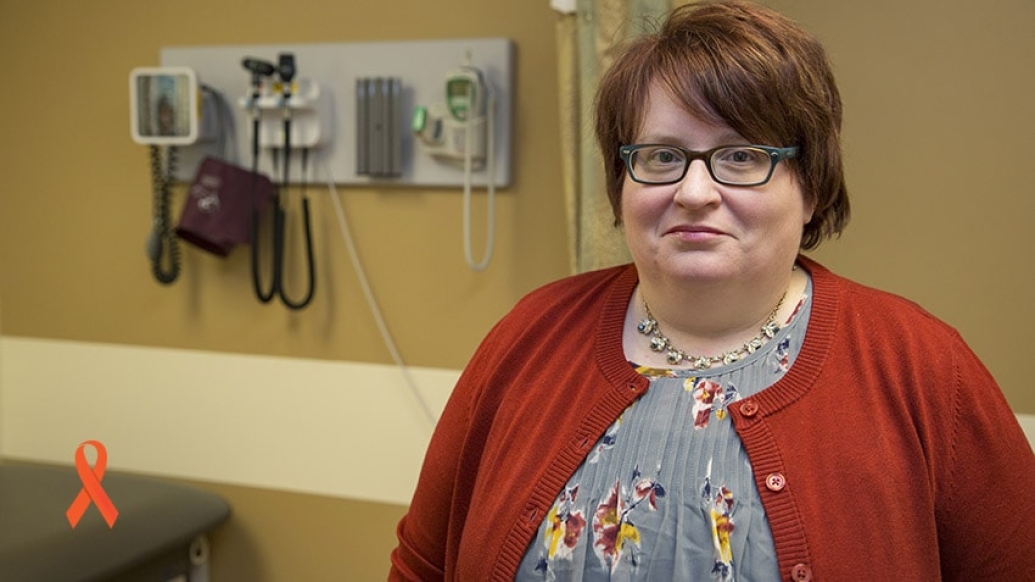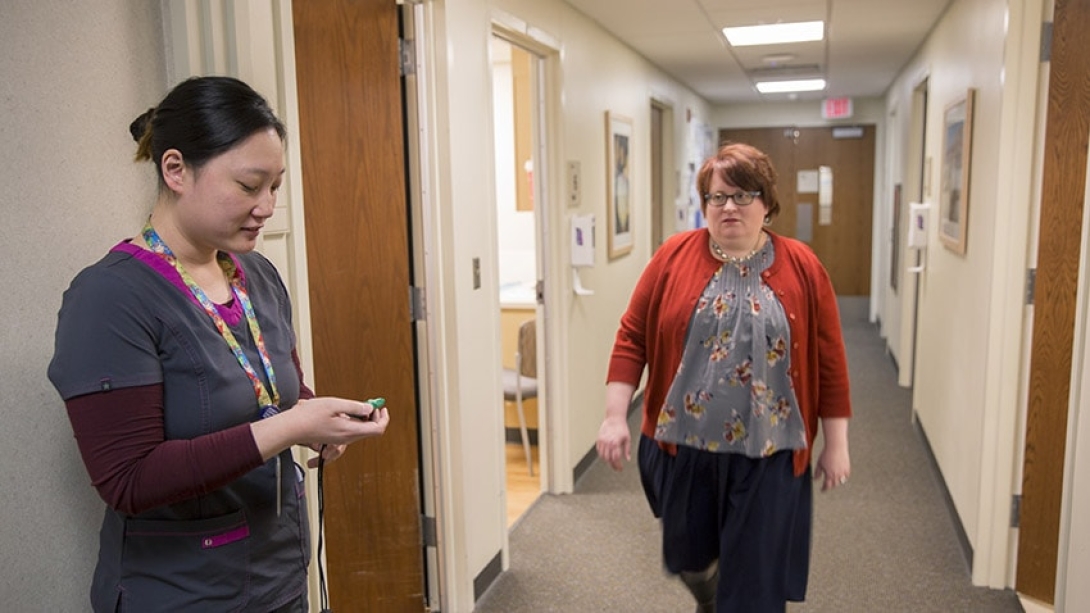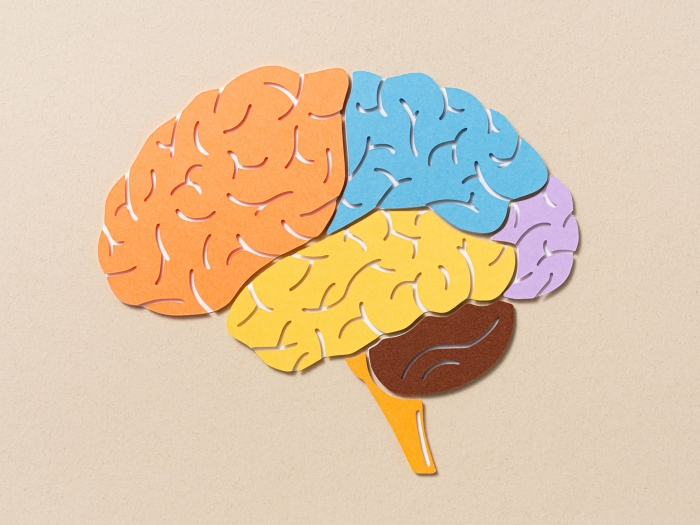Targeting a secondary health problem made “such a difference” for a multiple sclerosis patient, who regained some lost function.
7:00 AM
Author |

Catherine Haggart was surprised to learn that her multiple sclerosis symptoms might not be as bad as she thought.
MORE FROM MICHIGAN: Sign up for our weekly newsletter
Yes, she was working hard to find energy during the day. She caught herself jumbling some words at times, even though she knew exactly what she wanted to say. Haggart assumed it was all par for the course with her MS, but it turned out the disease wasn't to blame.
The real culprit? A sleep disorder.
"I never would have thought sleep apnea was the reason for some of my symptoms," says Haggart, a CPA from southeast Michigan. "I thought, 'Oh, it's just the MS; maybe it's a flare.'"
She had accepted the dreaded brain fog as part of her life since she became one of nearly half a million Americans living with MS.
But once Haggart began treatment for her obstructive sleep apnea, or OSA, she found that her cognitive function — thinking, processing and memory — returned to the levels she was used to.
Finding a connection
Many people with MS think that cognitive issues are an inevitable part of the condition and that not much can be done, says Michigan Medicine neurologist Tiffany Braley, M.D., M.S., who specializes in both MS and sleep research.
But MS patients are more prone to sleep problems, she says. Braley's 2016 research was the first to find an association between sleep apnea severity and cognitive performance in people with MS.
The good news? Sleep apnea is highly treatable. Braley's current study is building on this research to examine if treating sleep apnea could improve memory, processing and thinking in MS patients.
"A lot of people, including people with MS, don't realize that sleep is such an important component to their health and function," she says. "When Catherine told me she was feeling fatigued and having memory problems, we had a discussion about her sleep and realized sleep apnea was a possibility."
SEE ALSO: When CPAP Doesn't Work: Surgery Offers Relief for Sleep Apnea Patient
In obstructive sleep apnea, the throat collapses during sleep, causing the patient to repeatedly stop breathing throughout the night. Haggart's sleep study revealed that her breathing was obstructed more than 30 times per hour, and she was diagnosed with severe sleep apnea.
"I probably noticed a difference within a month of using the CPAP (continuous positive airway pressure therapy) machine," she says. "We didn't change any medications or doses; it was just the influence of the CPAP machine."
Haggart's new CPAP machine — which delivers air pressure through a mask to keep the throat open — allows her to stay asleep all night and wake up rested.
"Now, if I take the mask off in my sleep, I can tell in the morning because I'll feel such a difference," she says. "A lot of people have made comments like, 'How can you wear that thing?' To me, though, it seems like the easiest solution in the world."

Treatment with results
Braley says selecting the right interventions to control the disease and optimize function are two important goals of MS treatment. Treatments must be tailored to each patient, and, when possible, get to the root of the problem rather than mask symptoms.
That's why a simple solution like CPAP is so helpful.
"CPAP is the first-line treatment for OSA and can have a rapid effect on daytime symptoms, as well as longer-term benefits on overall health and well-being," says Braley, who is Haggart's neurologist at U-M's MS Fatigue and Sleep Clinic. Untreated OSA may increase a person's risk of high blood pressure, stroke and other health concerns.
For Haggart, an avid traveler, managing the fatigue is key. She and her husband don't want to give up their active lifestyles, whether that's walking her 150-pound mastiff, Ella, trying out curling or hitting the bike trail in the summer.
Her legs still get tired easily, but she isn't experiencing the same level of cognitive struggles.
"With MS, I still have some days that are harder than others," Haggart says. "But my energy levels are much better now that I'm sleeping. I'm not as drained at the end of the day as I would have been."
Braley, meanwhile, hopes that other people with MS will take charge of their sleep health and talk to their neurologist if they suspect they might have a sleep disorder.
To learn more about Braley's latest MS and cognition study, visit UMHealthResearch.

Explore a variety of health care news & stories by visiting the Health Lab home page for more articles.

Department of Communication at Michigan Medicine
Want top health & research news weekly? Sign up for Health Lab’s newsletters today!





